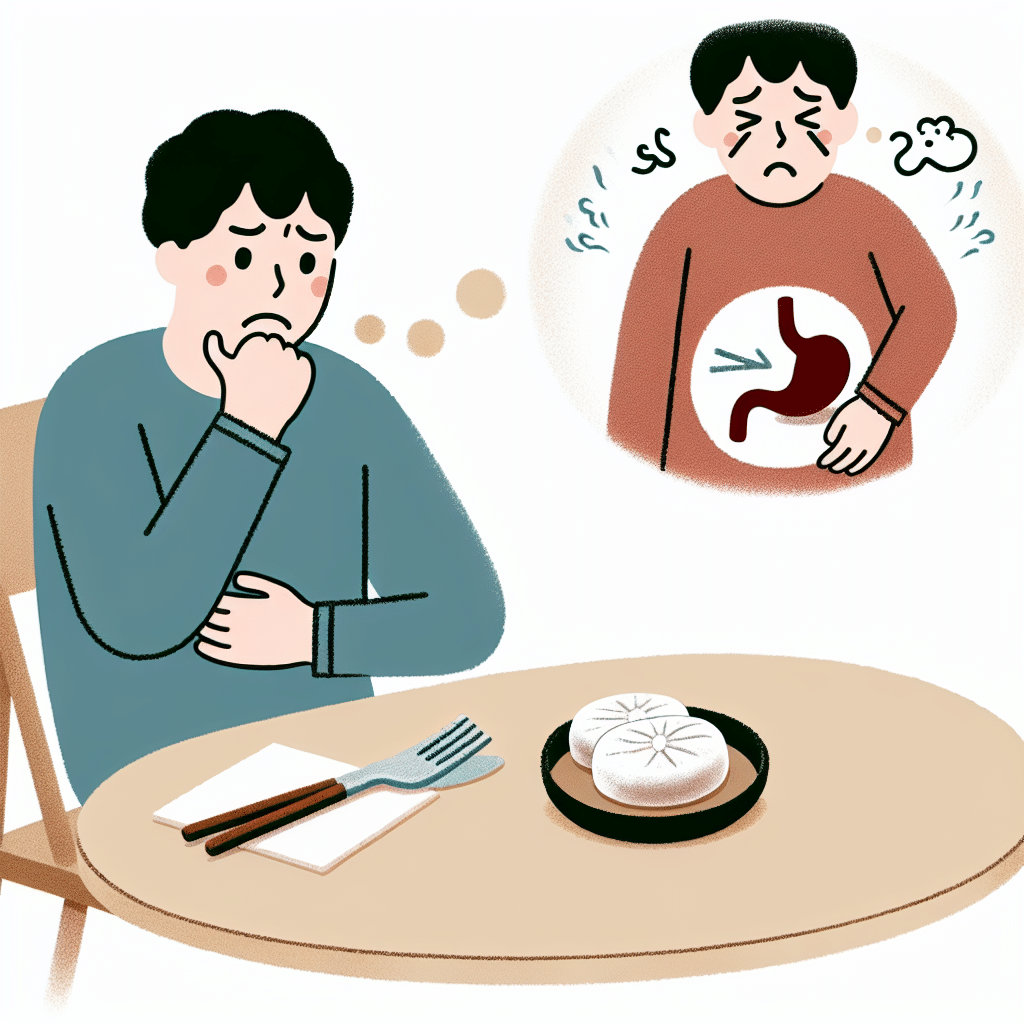Why Does My Stomach Hurt After Eating Mochi?
-
Table of Contents
- Stomach Pain After Eating Mochi: Causes and Prevention
- Understanding Mochi and Its Ingredients
- Possible Causes of Stomach Pain After Eating Mochi
- Case Studies and Statistics
- Preventing Stomach Pain After Eating Mochi
- When to See a Doctor
- Conclusion: Enjoying Mochi Without Discomfort
- Enhance Your Diet with ETprotein’s High-Quality Protein Products
Stomach Pain After Eating Mochi: Causes and Prevention

Mochi, a traditional Japanese rice cake, has gained popularity worldwide for its unique chewy texture and versatility in both sweet and savory dishes. However, some individuals may experience stomach pain after consuming mochi. This discomfort can be concerning and detract from the enjoyment of this delicacy. In this article, we will explore the potential reasons behind stomach pain after eating mochi and offer insights into how to prevent such discomfort.
Understanding Mochi and Its Ingredients
Mochi is made from glutinous rice, also known as sticky rice, which is pounded into a paste and then molded into the desired shape. While mochi is naturally gluten-free and does not contain many allergens found in other foods, its unique composition can still cause digestive issues for some people.
Possible Causes of Stomach Pain After Eating Mochi
- High Glutinous Content: The sticky nature of glutinous rice can make mochi difficult to digest, especially for individuals with slower digestive systems or those who are not used to eating glutinous foods.
- Overeating: Mochi is quite dense and filling, and it’s easy to consume too much without realizing it. Overeating mochi can lead to stomach pain simply due to the volume of food.
- Chewing Habits: Mochi’s chewiness requires thorough chewing. If not chewed properly, larger pieces can be hard to digest, leading to discomfort.
- Food Intolerances: Some people may have sensitivities to rice or other ingredients commonly found in mochi, such as sweeteners or additional flavorings.
- Additives and Preservatives: Commercially produced mochi may contain additives that can irritate the stomach or trigger sensitivities in some individuals.
Case Studies and Statistics
While there are no specific case studies or statistics on mochi-induced stomach pain, there is a wealth of data on food intolerances and digestive issues related to glutinous foods. For example, a study on functional dyspepsia, a condition characterized by indigestion and pain in the upper abdomen, suggests that certain foods can exacerbate symptoms. Mochi, with its dense and sticky properties, could potentially be one of these foods for some individuals.
Preventing Stomach Pain After Eating Mochi
- Moderation is Key: Enjoy mochi in small quantities to prevent overburdening your digestive system.
- Chew Thoroughly: Take the time to chew mochi well to aid in digestion and reduce the risk of stomach pain.
- Hydration: Drink plenty of water when eating mochi to help facilitate digestion and prevent constipation.
- Know Your Body: Be aware of any food intolerances you may have and check the ingredients in mochi for potential triggers.
- Opt for Natural: Choose mochi made with natural ingredients and minimal additives to reduce the risk of stomach pain.
When to See a Doctor
If you frequently experience stomach pain after eating mochi or if the pain is severe, it’s important to consult with a healthcare professional. They can help determine if you have a food intolerance or a more serious digestive condition that needs to be addressed.
Conclusion: Enjoying Mochi Without Discomfort
Stomach pain after eating mochi can be caused by a variety of factors, including the food’s glutinous nature, overeating, improper chewing, and individual food sensitivities. By understanding these potential causes and taking steps to prevent discomfort, such as eating in moderation and choosing natural, additive-free options, you can enjoy mochi without the fear of stomach pain.
Enhance Your Diet with ETprotein’s High-Quality Protein Products
If you’re looking to complement your diet with high-quality protein sources, consider ETprotein’s range of organic bulk vegan proteins. Their products, including rice protein, pea protein, and various seed proteins, are non-GMO, allergen-free, and characterized by a neutral taste. These proteins can be a great addition to your diet, especially if you’re experiencing digestive issues with other foods like mochi.
About ETprotein:
ETprotein, a reputable protein and L-(+)-Ergothioneine (EGT) Chinese factory manufacturer and supplier, is renowned for producing, stocking, exporting, and delivering the highest quality organic bulk vegan proteins and L-(+)-Ergothioneine. They include Organic rice protein, clear rice protein, pea protein, clear pea protein, watermelon seed protein, pumpkin seed protein, sunflower seed protein, mung bean protein, peanut protein, and L-(+)-Ergothioneine EGT Pharmaceutical grade, L-(+)-Ergothioneine EGT food grade, L-(+)-Ergothioneine EGT cosmetic grade, L-(+)-Ergothioneine EGT reference grade and L-(+)-Ergothioneine EGT standard. Their offerings, characterized by a neutral taste, non-GMO, allergen-free attributes, with L-(+)-Ergothioneine purity over 98%, 99%, cater to a diverse range of industries. They serve nutraceutical, pharmaceutical, cosmeceutical, veterinary, as well as food and beverage finished product distributors, traders, and manufacturers across Europe, USA, Canada, Australia, Thailand, Japan, Korea, Brazil, and Chile, among others.
ETprotein specialization includes exporting and delivering tailor-made protein powder and finished nutritional supplements. Their extensive product range covers sectors like Food and Beverage, Sports Nutrition, Weight Management, Dietary Supplements, Health and Wellness Products, and Infant Formula, ensuring comprehensive solutions to meet all your protein needs.
As a trusted company by leading global food and beverage brands and Fortune 500 companies, ETprotein reinforces China’s reputation in the global arena. For more information or to sample their products, please contact them and email sales(at)ETprotein.com today.












